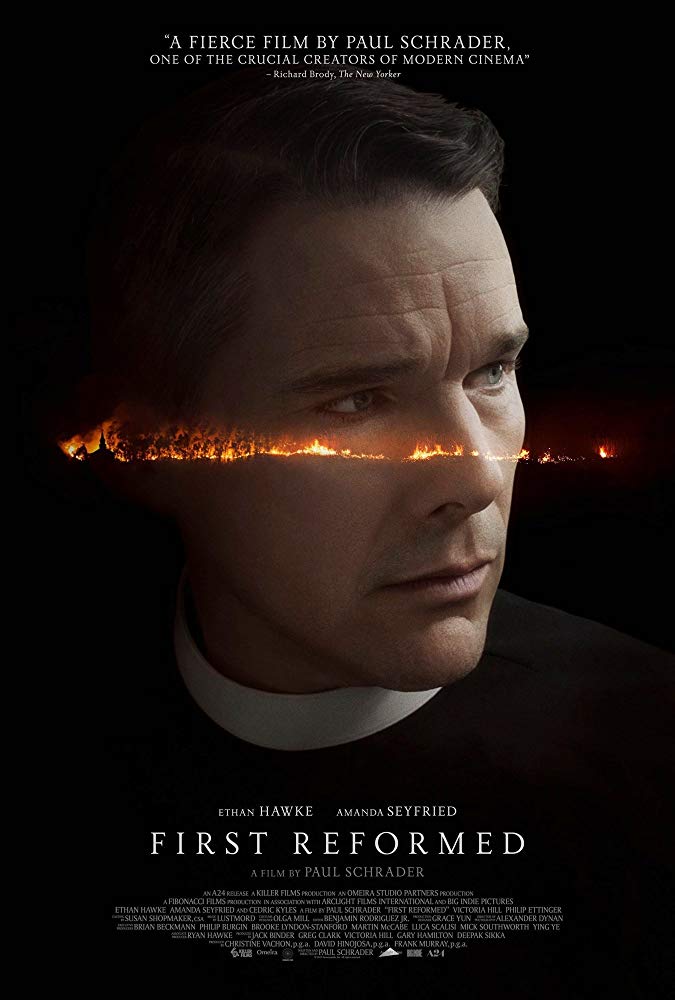Reverend Ernst Toller (Ethan Hawke) is a minister presiding over First Reformed, a long-forgotten historical church that lies above what used to be a stop on the Underground Railroad. He is a former military chaplain whose marriage fell apart after the death of his son in the Iraq War, whom he encouraged to enlist.
When a young, pregnant parishioner named Mary (Amanda Seyfried) seeks counseling for her radical environmentalist husband, Toller experiences a crisis of faith. Meanwhile, preparations for the 250th anniversary of the Protestant church are underway by Abundant Life, the encompassing megachurch sponsored by a rash industrialist.
Reverend Toller sits at his desk where he has been writing his thoughts into a journal. He plans to perform this act for one year, after which his recordings will be destroyed for an unspecified reason. This recurring inner monologue allows writer-director Paul Schrader to include voice-over narration without it being considered non-diegetic, a form of sound he excludes except for sparse ambient tones throughout.
Withholding this convention as well as any camera movement are two techniques of transcendental cinema, a culturally universal style of filmmaking that is based in expressions of the Holy or transcendent. Schrader, the man behind “Taxi Driver” and writer of “Transcendental Style in Film: Ozu, Bresson, Dreyer,” is a film theorist with a passion for slow-cinema, yet this is the first time he has attempted a transcendental style.
The influence of his three hero directors can be seen throughout “First Reformed.” Like Yasujirō Ozu’s “Tokyo Story,” the picture is square with little movement and features compositions that make any freeze-frame a beautiful image. As in Robert Bresson’s “Diary of a Country Priest,” he tells a story about a minister whose ideals are challenged in a test of faith. Finally, like Carl Dreyer’s “Ordet,” there is an incredible scene of bold emotion at the end that breaks from everyday reality.
Schrader (“American Gigolo,” “Light Sleeper”) has long been making movies about the man in a box – the drifter, the loner, the light sleeper. His tormented priest feels like a culmination of all his past work and represents his most masterful so far. This is one of the best performances of Ethan Hawke’s career; he is a soulful artist with lines on his forehead that have as much to say as spoken words. Hawke and Seyfried both deliver stirring, committed performances as they represent symbols of despair and hope.
Ultimately, this movie is about the choice between those two extremes. Toller doesn’t believe, he chooses to believe. He sees himself as a steward to the sacred garden while the rest of the world, including the church, has neglected their role in protecting the planet from climate change. At one point he is asked, “Can god forgive us for destroying his creation?” Don’t expect any easy answers from “First Reformed.”
_Edited by Siena DeBolt | [email protected]_








